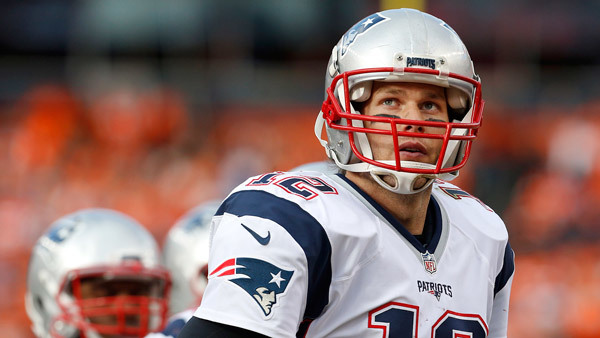
Despite all the action in Washington these days, there should be a lot of movement and excitement in Houston this Sunday when the New England Patriots take on the Atlanta Falcons in Super Bowl LI.
The Patriots represent the American Football Conference (AFC), while the Falcons are part of the National Football Conference (NFC).
Some football fans and stock-market watchers claims the Dow Jones industrial average moves up when a team from the original National Football League triumphs — meaning a Falcons win is good news for equities.
Likewise, when an original American Football League team wins, the Dow Jones Industrial Average drops — so a Patriots victory is bad news for stocks. (The Dow was trading around 20,050 on Friday.)
“We would be the first to admit that this [Super Bowl] indicator has no connection to the stock market, [and] the relationship is random. But there is also no arguing that the Dow has performed better when NFC teams have won over the past 50 years,” said Ryan Detrick, senior market strategist for LPL Financial, in a report on Friday.
That’s good news for Falcons fans (and Tom Brady haters.)
More Analysis
Another and simpler way to look at the Super Bowl indicator, Detrick says, is to look at the average gain for the Dow after the NFC wins vs. the AFC — and ignore the history of the franchises.
Using this analysis, equities trading on the Dow has had an average price return of 10.9% when the NFC wins compared with just 4.3% with an AFC winner, he points out.
Put differently, an NFC winner is tied to positive returns 82% of the time; the Dow has been up only 61% of the time when the winner comes from the AFC.
Brady, Patriots Bashing
“The New England Patriots have an even worse record for markets than the AFC as a whole,” the LPL strategist explained.
In the eight previous Super Bowls when the Patriots played, the Dow has been up for the full year exactly 50% of the time — with an average gain of only 0.3%.
When the Patriots won, the Dow had an average loss of 4.1%. (This is the average for 2002, 2004, 2005 and 2015.)
“Those who love Tom Brady will be glad to see him starting in his record seventh Super Bowl, but those who don’t will be interested to note that markets have actually fallen for the full year 67% of the time” in the four out of six Super Bowls he has started as the Patriots quarterback — with an average loss of 7.2%, according to Detrick.
To be fair, he points out, two of the years when the Patriots played in the Super Bowl were “extreme outliers.”
In 2002, the Dow had its largest decline, 17%, since 1977. In 2008, it dropped a whopping 34%, which was the largest fall since the Great Depression. “Even the most ardent Patriots detractors can’t realistically fault [quarterback] Tom Brady or [coach] Bill Belichick for the financial crisis,” the LPL strategist said.
Falcons’ Time?
With these statistical trends in mind, advisors and investors “should be rooting for the NFC’s Atlanta Falcons (though LPL employees in the Boston home office may disagree),” Detrick says.
And it’s worth noting that Falcons’ quarterback Matt Ryan played for Boston College.
“As an expansion team in the NFC, an Atlanta victory would point toward a positive and above-average year for the Dow, while the Patriots, an original AFL team that morphed into the AFC, would signal a down year and below-average returns,” he explained.
On the serious side, LPL’s research team wants to make it clear that it does not believe “that sports scores influence markets.”
On a lighter note, Detrick and colleagues hope everyone enjoys Sunday’s game and festivities and can “wake up” for more market mayhem on Monday.
Originally published on ThinkAdvisor. All rights reserved. This material may not be published, broadcast, rewritten, or redistributed.


